How do you live when your child has died? Two mothers forge a path through the worst journey
For a long time after her daughter died, Karol Barac never laughed. Then she met Karen Shuster.
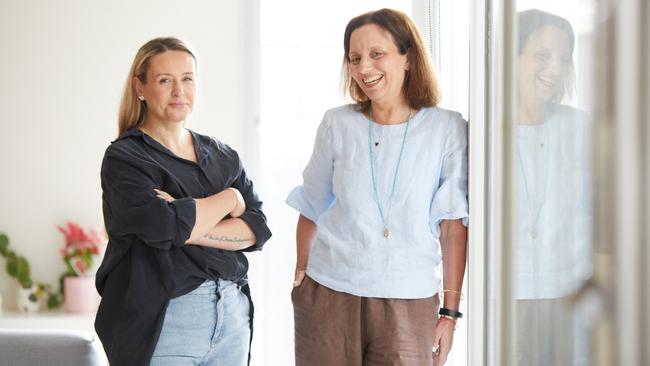
The past and the present merge gently, but not quite imperceptibly, when Karen Shuster speaks about her second son. Morris was just 20 when he died five years ago, a rare and aggressive cancer striking out so many milestones that had been breezily assumed in his pre-diagnosis world.
Endings, however, don’t tell you everything. When Karen talks about her son today, she will mention his huge presence, how he picked John Denver, only partly in jest, as the soundtrack to his first round of emergency radiotherapy, and how he adored his grandmother.
“He had this massive appetite for food and life and for ridiculously funny things that no one would find funny,” she says during a conversation on death that is rich with life and that segues from smiles to tears.
But it’s a sentence about Morris, uttered in the present tense, that has brought his mother to this moment in a bright Melbourne kitchen where she outlines the plans for the next stage of her life.
Having outlived her child, the future seemed alien and unguided. After Morris died from Ewing sarcoma in mid-2020, his mother wanted to honour his memory by living well. But she was swamped with guilt, sadness and isolation. Some days she felt physically ill.
In her early 50s, Karen knew no one like her. Her loss was vast and lonely. “I didn’t know even how to articulate it. It was so intense and so foggy and it seemed so final and long-term and no one understood Morris,” she says. “I thought if I joined a group for grieving parents that would be good because I don’t know how to do this grief, I don’t know how to carry on.”
In mid-2023 she joined a Zoom meeting. A vivacious woman filled the screen. The presenter was Karol Barac, a mother whose grief was even fresher than Karen’s.
In 2021, Karol’s teenage daughter, Olivia, was fatally hit by a train. Yet Karol’s presentation, two years into her life as a mourning mother, was not stamped with grimness. On the contrary, it was laced with the same energy that seemed to have been the leitmotiv of her daughter, about whom she was talking so animatedly.
Watching on, Karen found herself laughing. “That story is one my son would love. Olivia is hilarious,” she messaged Karol after the meeting. That present tense text, about two children still so vibrantly forward in their mothers’ minds, set the tone for a deep and unexpected bond.
The women exchanged more messages and the following day Olivia’s mum asked Morris’s mum about her son’s favourite food. That night Karol feasted on pasta, honouring a young man she had never met.
It was three years to the day that Morris had died – and the first day of an unlikely friendship in which two mothers, linked by sorrow, began to understand and embrace the other’s child, and to rediscover some of the finest elements of humanity.
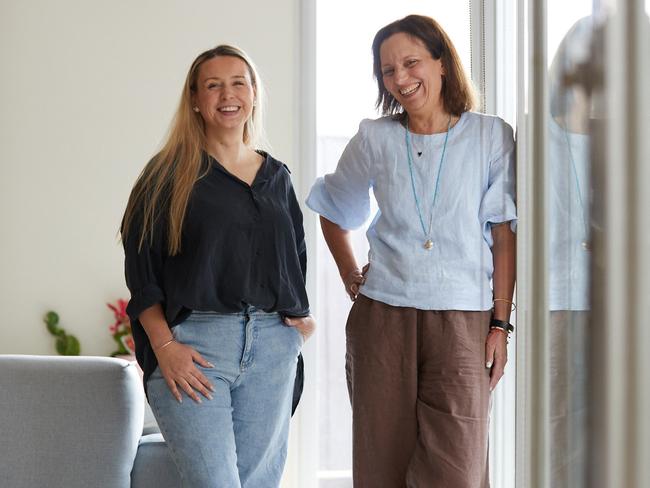
“How do you sum up a kid?” At 45, Karol Barac is warm and effusive, and she radiates pride as she talks about the middle of her three children, Olivia. “She was always a big character,” she says proudly. “She was the it factor, she was good at everything. She was good at sport. She would make people laugh.”
Olivia, the big-hearted charmer who dreamt of opening her own beauty salon, who favoured long whitish nails and perfectly plucked eyebrows, was her commonsense teenager and also her best friend. “She was my mini-me. And she always used to laugh and say: ‘When we get older I have to live with you … You’d better buy me the house next door.’ ”
Olivia’s words seemed prescient. “She was always in a hurry to live,” her mother says. Olivia had long been on a rushed path, priding herself, for example, on learning to count by missing more than a few numbers (one, two, skip a few, 99, 100). By the second half of 2021 she was already planning her 16th birthday, even though it was more than half a year away.
She told her mother of her plans to wear a pink power suit to her party. “We were having this discussion in the kitchen and then she goes: ‘Don’t worry about it. I don’t know if I’m going to make it.’ And I was standing there,” says Karol, who is recounting this today in almost the same spot in her sunny Melbourne kitchen, “and we had this massive argument and I said: ‘Don’t talk like that, you’re doing so well.’ And she goes: ‘I don’t think I’m meant to be an adult.’ ”
Having been hospitalised numerous times – to remove her adenoids, tonsils and appendix, and for several arm breaks – Olivia had developed anorexia during the Covid pandemic and was hospitalised again.
Difficult months ensued for her and her family, but by the second half of 2021 she was happier and feeding well. “She was doing amazing,” Karol says. And then on “a really beautiful sunny afternoon”, in October that year, Olivia called Karol to say she was going to her boyfriend’s for dinner. “And then I got a message saying: ‘We’ve had an early dinner, we’re going to go for a walk’,” Karol says now.
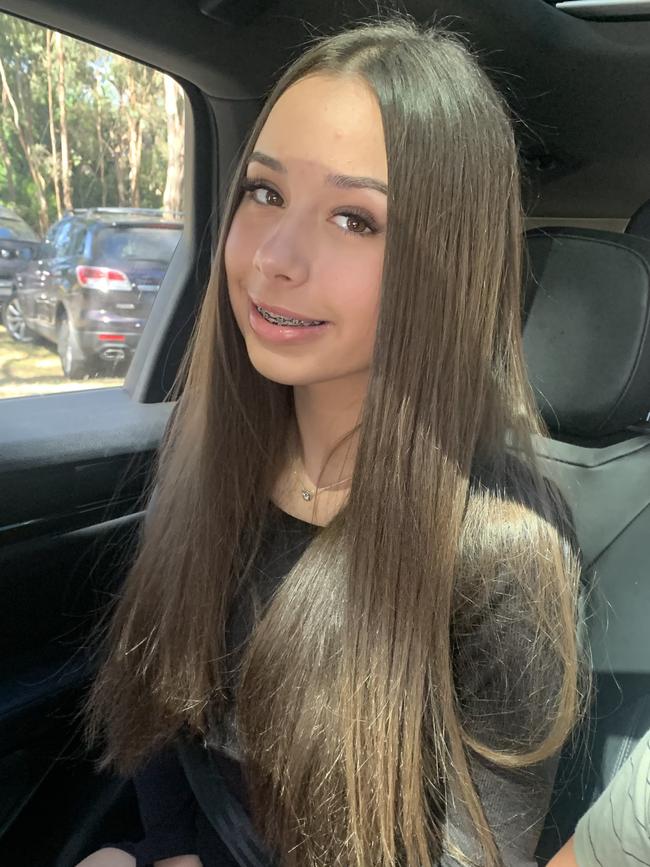
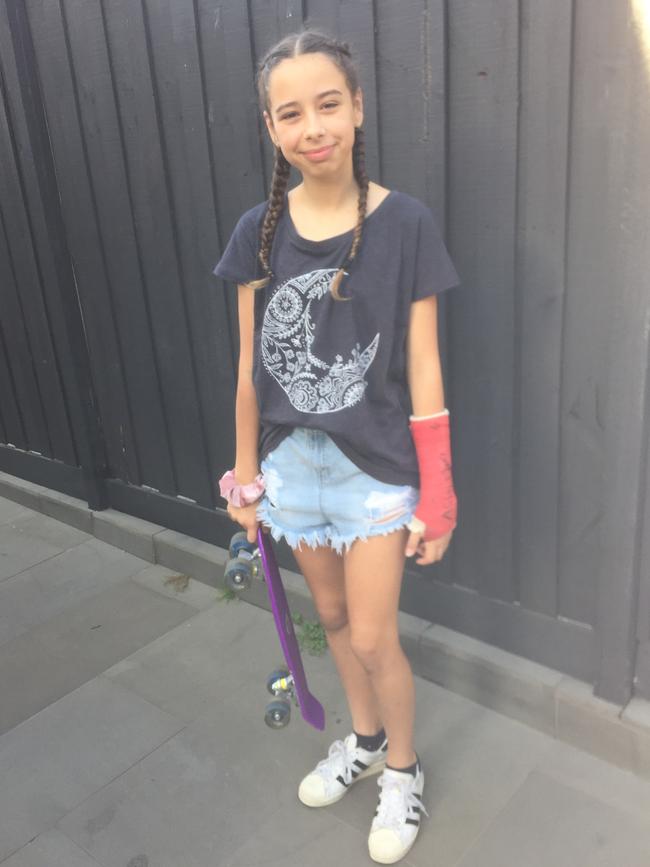
“Twenty minutes later I got a phone call from the police that there’s been an accident: ‘Don’t go, but we’ve called an ambulance. She’s as bad as it can be.’ ”
Olivia had been skylarking. She was on the tracks when she was hit by a train, her pelvis smashed, her head bleeding out. Her airways shut down; paramedics spent two hours trying to save her. As she underwent emergency surgery, her parents and siblings waited in a tiny hospital space in a locked-down city. “I went into that numbness,” Karol says, “and I thought: ‘How am I going to get these other two (children) out of this? How do I maintain normal life?’ ”
She remembers praying through that long night. “I think I was bargaining with God. I was bargaining with her (Olivia): ‘I’ll buy you a f..king house, just come through this.’ ” She remembers summoning a priest. “I was thinking: ‘What else do you do?’ ” She remembers watching her daughter’s final minutes and the machinery keeping her alive.
“I don’t even remember what time they turned her off. They gave us time to say goodbye, and then they took the machine off, and that’s when the simulator stopped.” It was October 2021. Olivia was not yet 15½.
Her loss was incalculable to her devastated family, who dragged themselves home after the worst day. As they walked through the front door, a clock inexplicably fell in the entrance hall and smashed. Karol and her bereft husband were startled. “And he looked at me and he said, ‘Time stands still.’ ”
Karen Shuster had been mourning for many months by then. Her son’s life had been sapped away with increasing pain across several years and his absence brought more challenges than just sheer grief. “I couldn’t accept that Morris would disappear,” Karen says.
Tall and sporty, her second son was an old soul who loved basketball and food; in his family lore, which is crammed with Morris stories, he had requested grapefruit and olives when, as a baby in a high chair, he was asked what he’d like for breakfast.
But for all Morris’s spiritedness, his life plan extended only to studying commerce at the University of Melbourne. Because at 17 he was diagnosed with Ewing sarcoma, a rare bone cancer.
Months of tests had failed to detect the source of his referred pain when he finally underwent a magnetic resonance imaging test in mid-2017. His mother was at a shopping centre when the results came through. “A doctor rang me and said: ‘I need to refer you to someone else’, and I remember collapsing on this bench, watching all these normal people going about their day, and thinking: ‘That’s it. The world is gone.’ ”
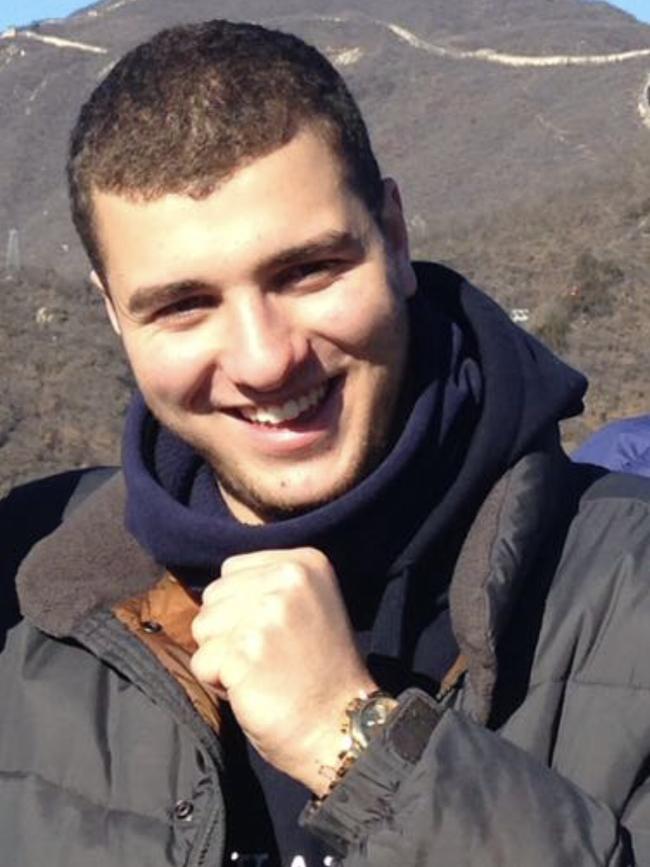
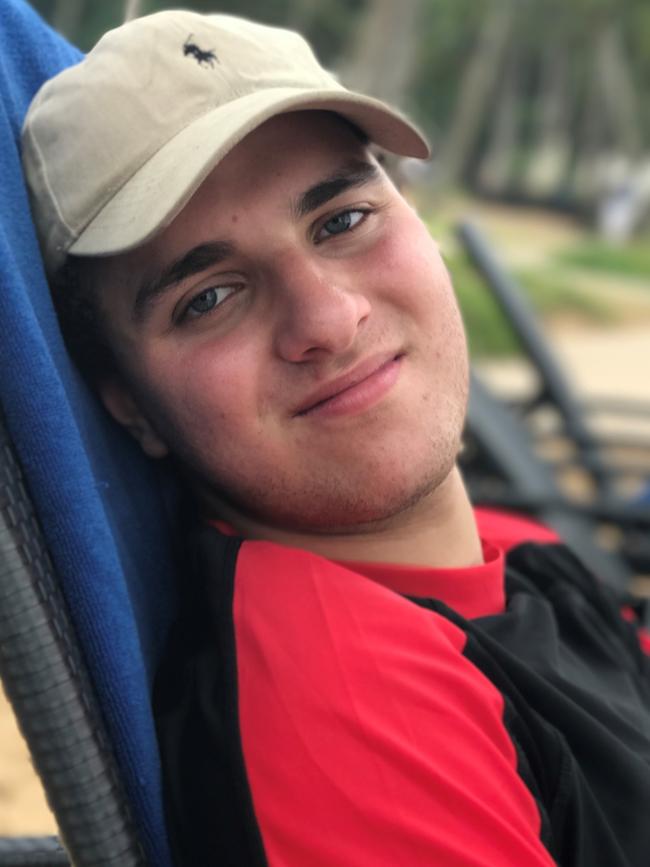
Morris underwent months of gruelling treatment: surgery to remove a quarter of his pelvis, radiotherapy and a brutal regimen of chemotherapy that required him to be hospitalised each time for five days. When it was done his family assumed the worst was over. “No one ever said definitively ‘He’s going to be fine’ but everything was looking good,” Karen says.
Still thinking about the future, Morris continued his schooling at his mother’s urging. “I didn’t want the year just to be about cancer.” He finished treatment in April 2018. The week after his final year 12 exams, he returned to hospital for scans. “And they took us into this room and they said: ‘We’re really sorry. This is terrible. We don’t even know if we can cure you.’ ” The cancer had spread rapidly, not only to Morris’s lungs but also dangerously close to his heart.
As his family searched for alternative solutions, he underwent radical radiotherapy that helped at first but eventually affected his oesophagus so badly that he had difficulty swallowing. Fed through a nasogastric tube, he became weaker and was in increasing pain, even as he emailed doctors around the world about trials that he might join.
On a late May night in 2020, as his mother rubbed his feet, and his father and siblings took turns holding his hands, Morris breathed in his last day. “I was just fighting to make him feel like: ‘I have got you here, Morris, it’s OK.’ ” Just after midnight, Karen and one of her sons returned home, with reassurance from a nurse that there was time, only to rush back to hospital minutes later. “We got back there and they were trying to resuscitate him.” The family was directed to a small waiting room. “And we were just sitting there and I’m saying in my head, “Morris, you can’t go, you can’t go, you can’t leave.’ He left.”
How do you live when your child has died? For Karol, overwhelming heartbreak was mixed with guilt and judgment. “She should have known better. I had taught her better,” she says of Olivia’s skylarking. “You feel like you failed your child.”
There was also a lingering sense of being crushed. “There are no stages of grief. Every morning you wake up and your child is dead and every morning you go through the same wash of emotions.”
At her home on the other side of Melbourne, Karen also was floored. “I had gone through three years of fighting this, and being strong for Morris, and so I was numb. I didn’t know how to access any emotions.” At the same time, she was worried about how she would help her other children and her mother.
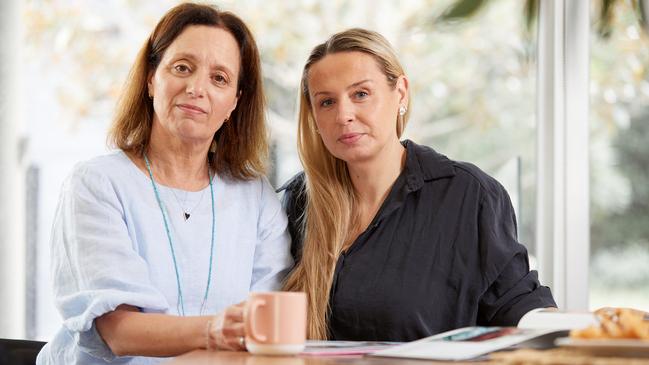
“You never think of yourself,” she says. “I know I was sad. But I wasn’t walking around crying. I just kept reliving everything. How did I let him down? Somehow this was my fault. This wasn’t supposed to happen.” Even the humour that had sustained her family through the worst of times seemed to have been swallowed by the darkness. “I never imagined there would be a possibility that I could feel joy again.”
Karen had more than a year’s start navigating life as a mourning mother when she first texted the reiki practitioner who captured her broken heart on that Zoom call.
“I was quite happy to meet a bereaved mum friend,” Karol says. “I didn’t want to be sad. I didn’t want (the future) to be trauma … I wanted to talk about how awesome the kids are rather than what happened to them that led to their passing.
“I was looking for tools that would help me so that I could be there for my other kids. And Karen was in that same headspace … My son had said at one stage: ‘I don’t want to be the brother of a dead girl’ and that really resonated with me and I thought we have to create a new normal.”
So she and Karen began talking, about their experiences and about the children they would never meet, and somehow, in navigating a path to support their families, they found not only friendship but a lost sense of lightness.
“I started laughing again when I met Karen,” Karol says. “Any question of judgment or wrongdoing on my behalf melted away.” For Karen, too, there was a sense of liberation. “Meeting her just let me be who I am with all of this.”
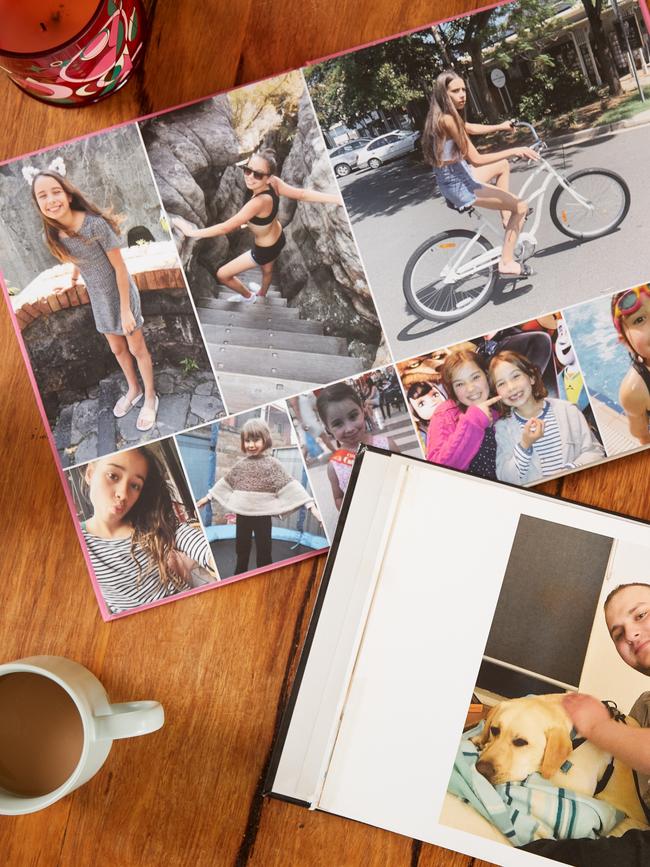
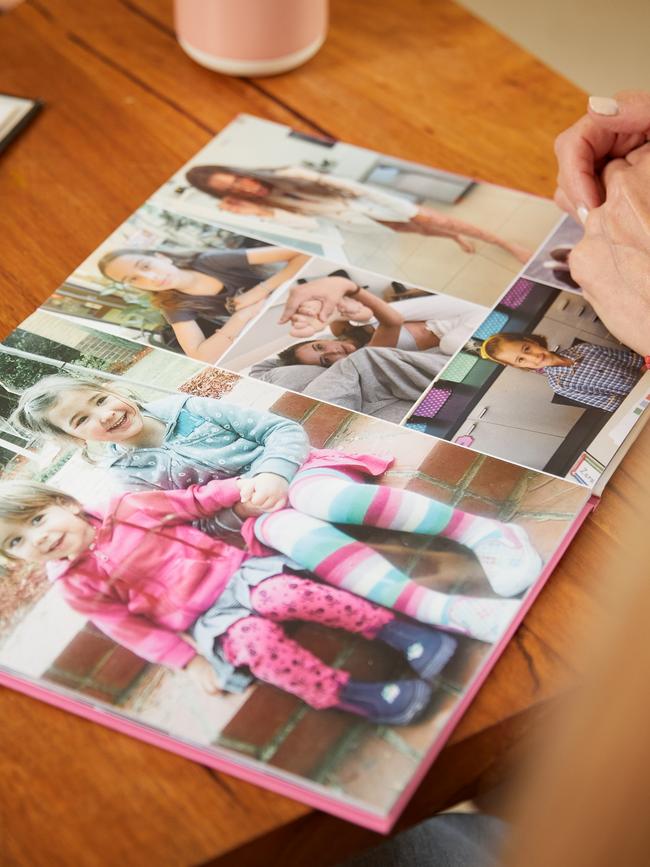
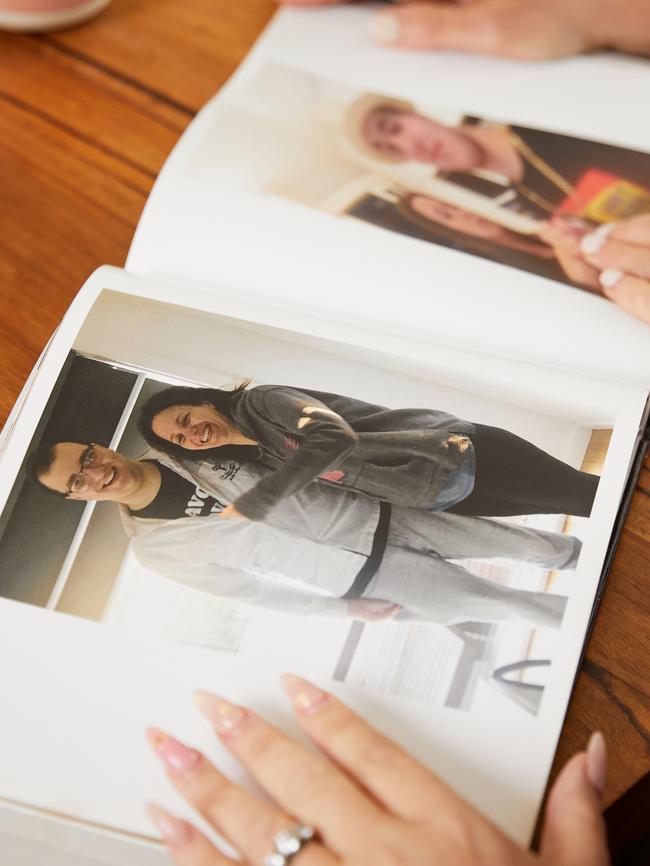
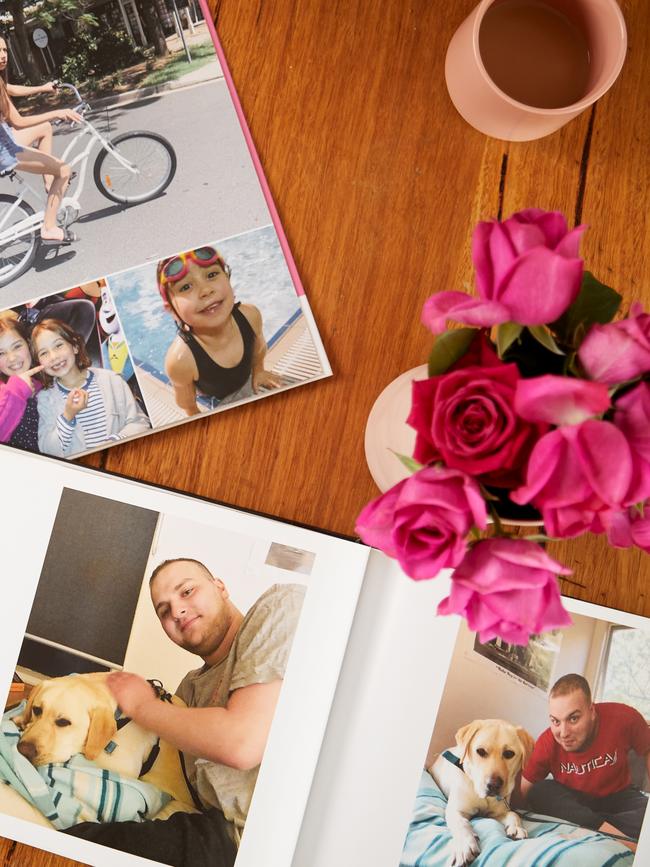
Since that first text message, their banter has not halted. “We can talk about the most inappropriate, ridiculous things to do with grief and people dying in a way that even my family is uncomfortable with,” Karol says. They share tears, yes, but they also laugh more often than you might imagine and the other day they described one another, only partly in jest, as the other’s grief wife – not as a barb to their cherished husbands but as recognition of their unexpectedly special relationship.
“I can annoy my family,” Karen says, “but I can annoy her 25 times a day with something Morris-ish and she will love it. And she’s the same. She can send me 25 videos of Olivia dancing and I love it.” Through endless anecdotes, they have come to know each other’s child intimately. When Karen has a manicure she often opts for a very pale shade she calls “the Olivia colour”. She notices car number plates with Morris’s initials and with Olivia’s.
From their darkest moments these two women have discovered comfort and lightness in their shared experiences – and they are keen to spread the word to other grieving mothers.
“There’s nothing out there,” Karol says of the dearth of support for women whose children have died at any age. Apart from some specific groups for women who have lost a child to miscarriage or sudden infant death syndrome, and some general family support networks, she has not found her own local tribe; the Zoom meeting after which she met Karen is international. “There’s no protocol. You sign off the death certificate. You go and organise the funeral. You go to the doctor, he sends you to see a psychologist. He says: ‘Do you want some sleeping pills?’ But apart from that there’s nothing.”
So together they have formed a charity, Connecting Mothers in Grief, to unite women and their shared experiences, and to help them live with what has happened but without “the heaviness of the grief”, Karen says. “We want to honour the grief but also help shift it.”
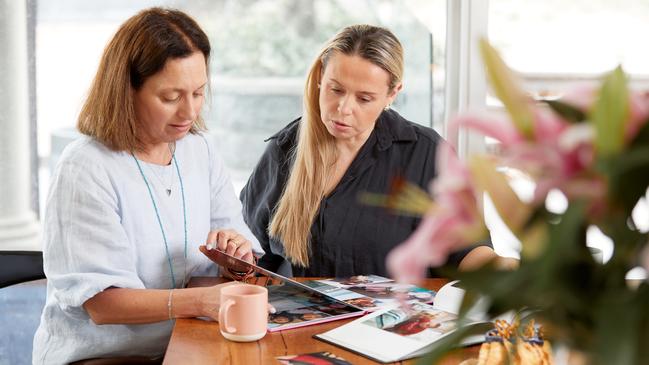
While their children have died, their relationship with them, they are adamant, continues. “None of us ever excludes our kid-in-spirit,” Karen says. “They are still our child.”
By connecting mothers around the world – they are already in contact with women in several countries including India, Vietnam and Mexico – they hope to forge an easier path through the worst journey. Their inaugural meeting, in Melbourne in February, was the first time many had talked to another grieving mother.
“There’s just a comfort in knowing that someone sitting next to you gets it, because no one gets it,” Karen says. “We can uplift each other; I don’t think our children want us to be miserable. For some people that’s not a choice, it’s just heavy and they can’t get out of it and that’s the effect it has on their life. But you can carry grief without actually mourning.
“You can still find life that’s meaningful and I think that’s because I haven’t let go of Morris. I’m not carrying him any more with the same level of heaviness. I watched him going through the most devastating diagnosis but he was never heavy about it. There was always hope and optimism, and there was this yearning to live every day of his life. And after he passed I made this decision that I was going to carry on with that. I wasn’t going to let him down.”
Then she turns to Karol and smiles. “We have discovered that together we can make this meaningful journey and that the relationship is not over. Our children might not be physically here but the relationship goes on. And if you can look at it as it’s not the end of the relationship – it’s certainly not what we want – then I think you can find hope and you can find meaning.”
And so their conversation continues, with its laughter and tears, and mountains of minutiae about two children who have become central to both their lives, even though neither is still physically present. Because as Karen says: “They are more than their ending.” And as Karol says: “We are always going to be their mums.”
cmig.com.au



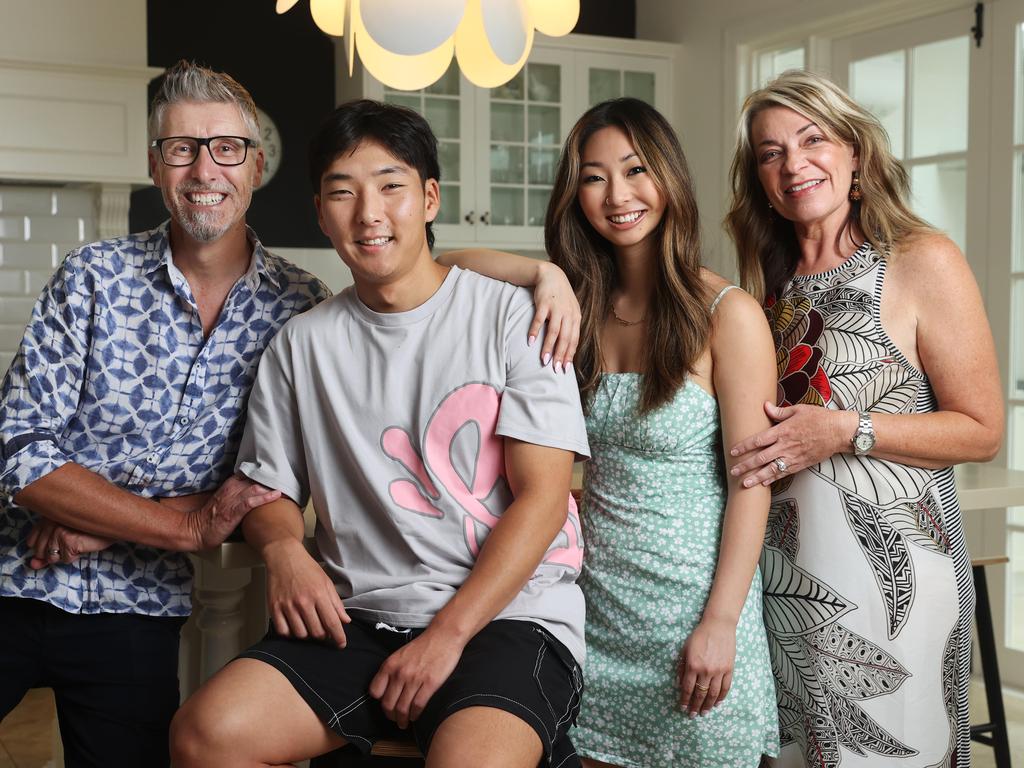

To join the conversation, please log in. Don't have an account? Register
Join the conversation, you are commenting as Logout